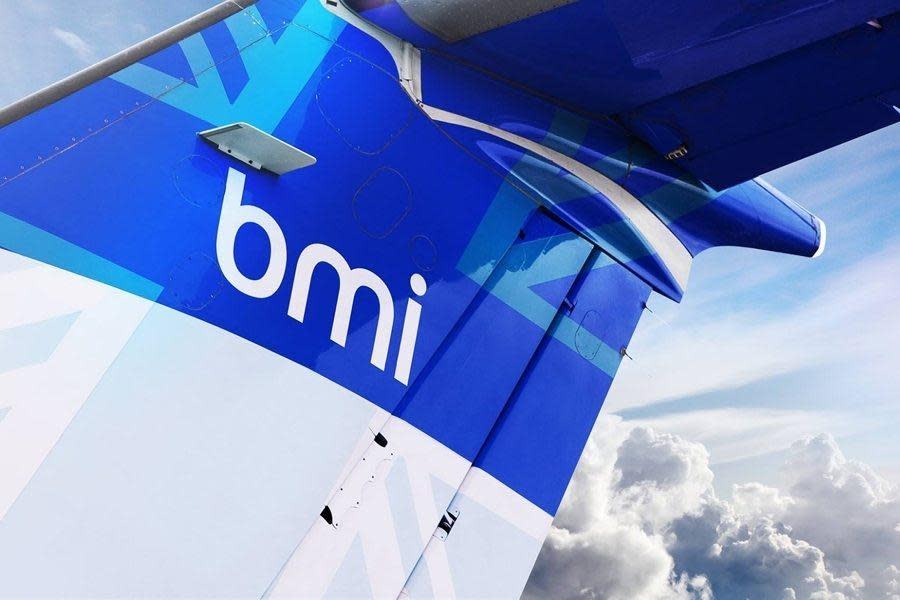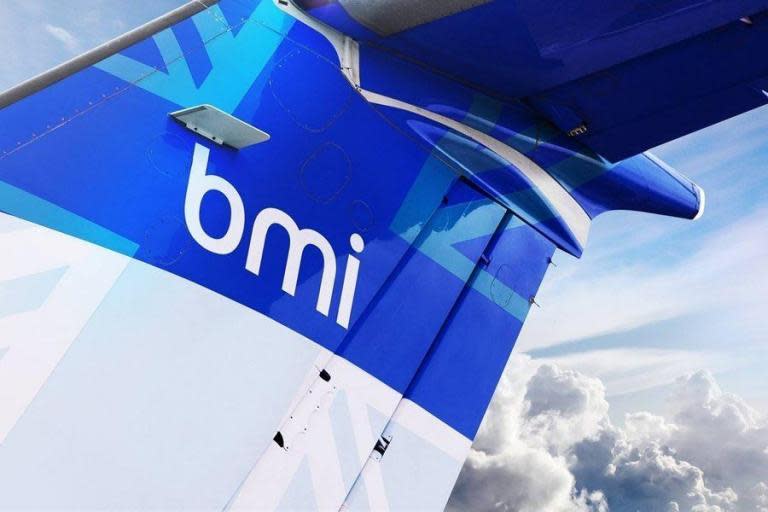Flybmi – why did airline collapse and what are passengers’ options?
Another airline has collapsed: Flybmi, based at East Midlands airport, has stopped flying and gone into administration. These are the key questions and answers.
Who was Flybmi?
It has a long history as the “regional” arm of British Midland, later BMI. When British Airways took over BMI in 2012, BA said it was uninterested in the regional operation. BMI Regional, as it was initially known, was sold off to investors who oped to develop a flourishing carrier.
Like Flybmi, Ryanair was once a small, struggling regional airline, and through cutting costs and fares has grown into the giant of European budget aviation. But Flybmi’s model involved charging premium fares for niche routes.
Where did Flybmi actually fly?
From regional UK airports (Aberdeen, Bristol, East Midlands and Newcastle) to Continental and Scandinavian destinations including Brussels, Dusseldorf, Frankfurt, Hamburg, Munich, Oslo, Paris and Stavanger.
It also operated the heavily subsidised route between City of Derry and London Stansted.
How big was Flybmi?
The airline had 17 small jet aircraft carried 522,000 passengers on 29,000 flights in 2018. That is as many as Ryanair flies in a day-and-a-half.
Why did it close?
The airline was heavily loss-making, and no-one was prepared to put in extra funding. The average passenger load per flight was just 18, meaning even the small regional jet planes flown by Flybmi were less than half-full. While many of the airline’s passengers were business travellers paying high fares, price-sensitive travellers (like me) would opt for alternative routes on cheaper carriers.
Rather than paying £74 one way from Stansted to City of Derry, I prefer to pay one quarter the fare to Belfast International and complete the journey overland.
Since Flybmi split away from BMI, investors have pumped in £40m, which represents a subsidy of about £13 per passenger ever flown.
The airline cites uncertainty over the UK leaving the European Union as a key factor, saying: “The challenges, particularly those created by Brexit, have proven to be insurmountable.
“Current trading and future prospects have also been seriously affected by the uncertainty created by the Brexit process, which has led to our inability to secure valuable flying contracts in Europe and lack of confidence around Flybmi’s ability to continue flying between destinations in Europe.”
If planes were half-empty – why didn’t Flybmi simply halve the number of flights to fill them all up?
The airline was firmly aimed at business travellers, who demand a choice of departures. Were the twice-daily Bristol-Munich route to become only a single daily service, the average load might have fallen even further.
What happens to people who are currently away from home and were planning to fly back on Flybmi?
Tickets issued directly by Flybmi are worthless. Grounded passengers will become unsecured creditors of an airline with no assets. However, other carriers will step in to offer “rescue” fares on replacement routes. For example, Ryanair is selling £9.99 tickets between Belfast International and Stansted for passengers on the City of Derry route.
Travel insurance may cover additional costs, such ground transport and hotel accommodation.
Passengers with Flybmi flights that were sold by “codeshare” partners – Lufthansa, Brussels Airlines, Turkish Airlines, Loganair, Air France and Air Dolomiti – should contact the carrier that issued the tickets about alternative flights.
I have a future booking. What are my options?
For bookings made with Flybmi, the airline has no assets and will never fly again. The standard procedure will be for passengers to contact their card issuer to begin the process of obtaining a refund.
For codeshare flights, the airline that sold the ticket should offer alternatives.
The very small number of passengers whose bookings were made as part of a package holiday should contact the tour operator to discuss options.
I have paid for car rental and accommodation bookings. If I can’t find alternative flights, will I be compensated for my costs?
You may be able to claim these costs back from your card issuer or travel insurer.
What happens to routes which were operated by Flybmi – will someone else step in?
Airlines will move in on the abandoned routes if they believe there is a market. The Scottish airline Loganair will take over the route from Aberdeen to Bristol, Oslo and Esbjerg on 4 March, and those from Newcastle to Stavanger and Brussels on 25 March.
Airline Investments Ltd owned both Flybmi and Loganair.
On the City of Derry-Stansted link, the availability of a generous subsidy means that another airline is likely to take over very soon. A route such as Bristol to Munich, connecting two big cities, may prove appealing to other carriers.
Why are times so tough?
This winter is proving extremely cruel to small airlines, which have high fixed costs and, currently, very low revenues. It has precipitated the collapse of Primera Air, Cobalt of Cyprus and Germania before Flybmi.
Flybe, which is continuing operations as normal, has been rescued by a cash injection from a consortium involving Virgin Atlantic, Stobart Air and a US hedge fund – which bought it for just £2.2m.
Small regional airlines based in the UK are particularly vulnerable. Return journeys on domestic flights are subject to £26 in Air Passenger Duty, placing them at an immediate disadvantage. And whenever a route becomes successful, it is likely that a bigger player will elbow in with larger planes and lower fares.
Demand across Europe is extremely weak. Even during half-term I am flying from Luton to Lisbon for £32. Later on this month there are plenty of flights to France, Spain, Germany and Italy that are being sold at a loss – for less than the £13 the airline must pay in Air Passenger Duty, such as Manchester to Cologne in Germany and Stansted to Castellon in Spain.
With passengers spoiled for choice and keen to find low fares, airlines with high costs – as small regional airlines tend to be – watch their passengers disappear to bigger rivals.
Tim Alderslade, chief executive of Airlines UK, representing 13 British carriers, said the collapse should give government “pause for thought about the costs they are asking airlines to absorb and to what extent this is sustainable into the future”.
Who’s next to fail?
Speculation is rife in aviation circles about possible collapses. If travellers shy away from airlines that are rumoured to be on the brink, these can prove self-fulfilling prophecies. The best advice is to ensure that flight bookings are protected – paid by credit card and, if possible, bought as part of a package.
I have been waiting for €250 in compensation from Flybmi following a severely delayed flight. Will I ever see the money?
No.



